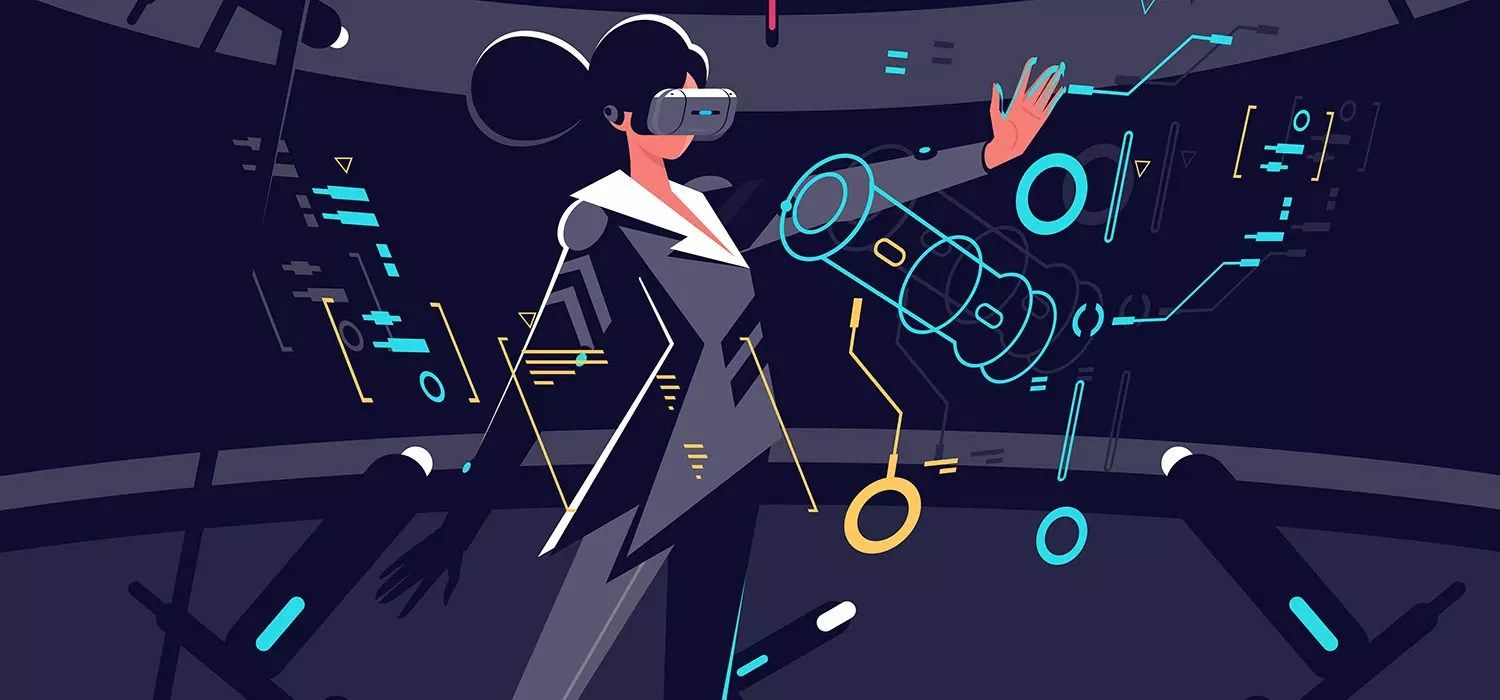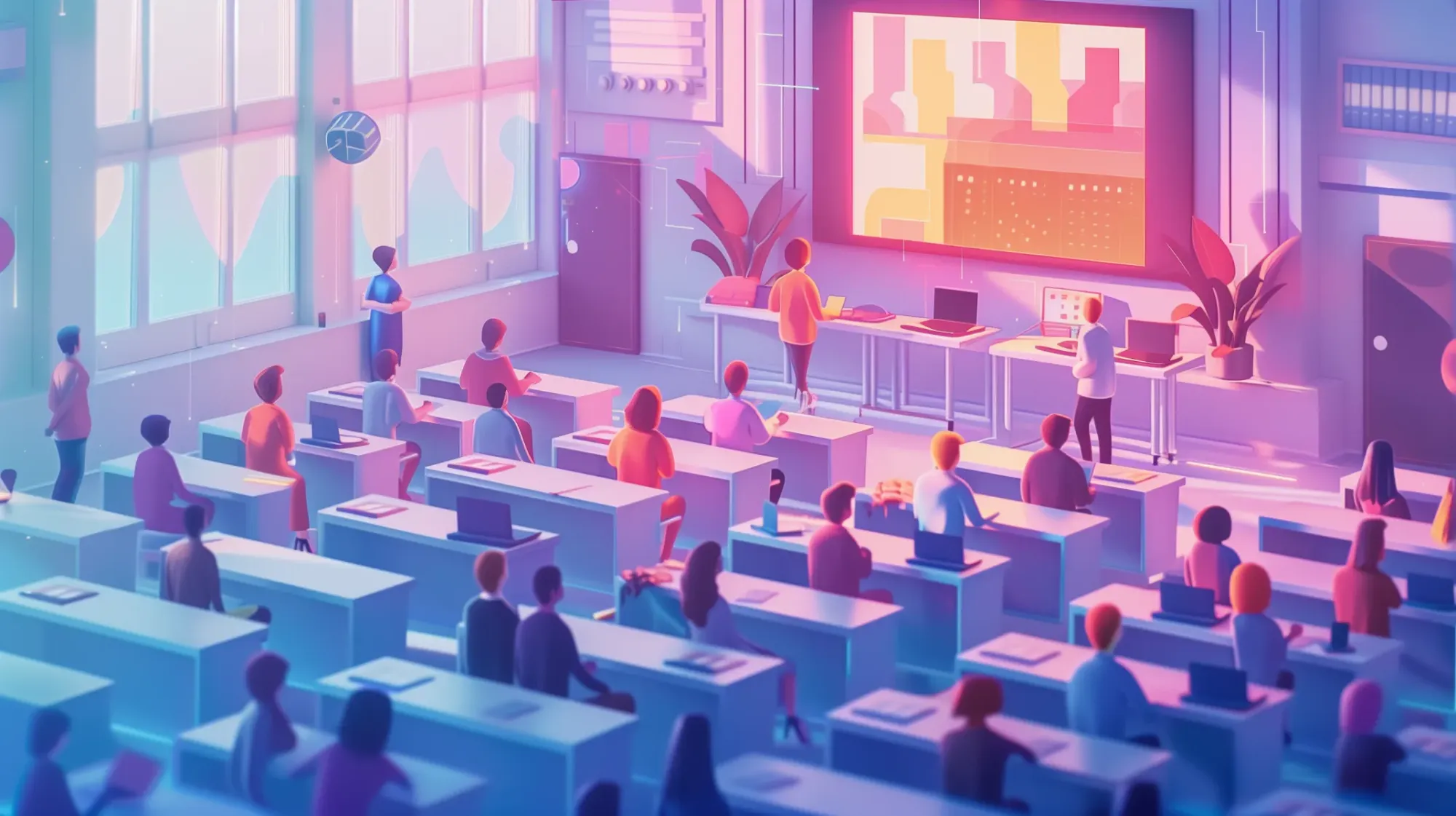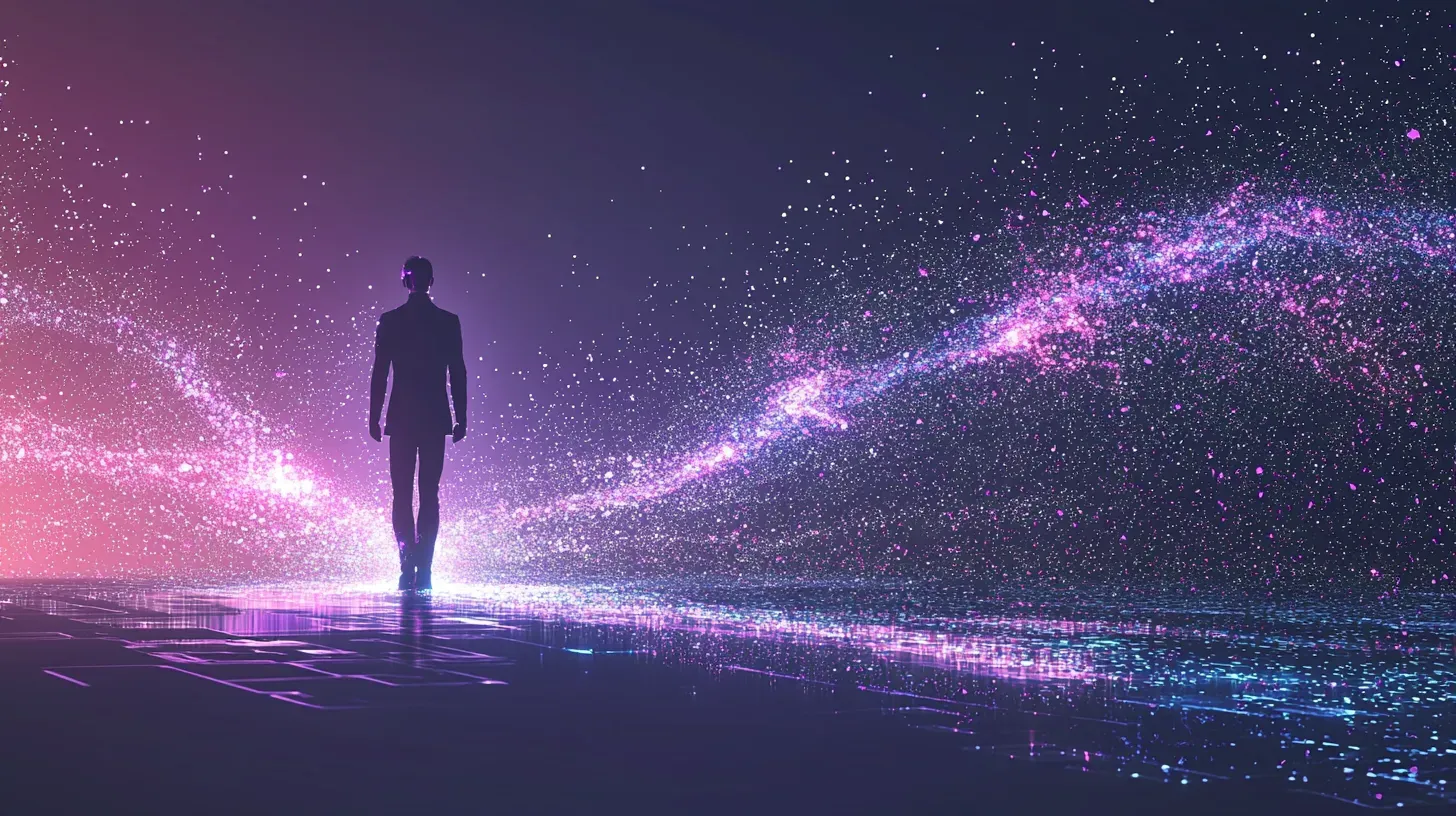7 Ways How AI Will Change Your Workplace

In the next five to ten years, your workplace will look fundamentally different. Thanks to technologies such as artificial intelligence, the internet of things and robotics work as we know it will drastically change. The future of work will come with great opportunities but also with plenty of challenges for organisations. It will require employees and management to adapt and work smarter. AI will augment your jobs, the Internet of Things will provide you with details insights and robotics will replace many jobs.
In the coming decade, your workplace will be datafied and digitalised. Digitalisation refers to the conversion of information into digital format, for example converting music into MP3 files, photos into JPEG, text to HTML and analogue video to YouTube videos. Doing so will increase your available data exponentially. Digitalisation, therefore, means capturing human ideas in digital form for transmission, manipulation, re-use and analysing.
Datafication, on the other hand, refers to turning analogue processes and customer touchpoints into digital processes and digital customer touchpoints. Datafication is the process of making a business data-driven – by transforming social action into quantified data. It involves collecting (new) data from various sources and processes using connected devices or creating detailed customer profiles.
Datafying your work starts by making your office, your workplace, your processes and your products smart. This will make previously ‘invisible’ processes traceable so that they can be monitored, analysed and optimised. Thanks to the lowering costs of sensors, increasing low-cost bandwidth, cheap availability of cloud-computing and processing capacity as well as numerous of connected devices it has become easier and cheaper to make these processes smart and help you capture data consistently and universally across different processes, products and workplaces. Datafication and digitalisation are the catalysts for the future of work.
As such, without data, there is no future of work. As I shared earlier, there are three concepts that define the future of work: data, decentralisation and automation. Together, these technologies will fundamentally change your workplace. So, let’s see how emerging technologies will affect the workplace of the future:
1. Finding, Hiring and Retaining Talent
AI is the perfect technology to improve your hiring process. You can use the technology to quickly find the needle in the haystack by analysing millions of social profiles, thousands of resumes and quickly detect a list of potential candidates. AI can then automatically interact with these candidates in an engaging manner to build a healthy pipeline of the best candidates. The company Arya is one of the companies that offers organisations intelligence-driven talent acquisition.
Once you have identified a pipeline of candidates, or have a large group of candidates that respond to a job application, you can use AI to assist in selecting the right candidate for your company. There are dozens of AI-powered tools available that assist recruiters in hiring (remote) workers. You can use AI in assessing a candidate’s skills, personality and even the organisational fit. For example, the company Filtered, offers assessments for data scientists and engineers. Each assessment is analysed using AI. Facial recognition helps detect cheating and results are filtered before hitting your inbox, saving the recruiter valuable time when hiring the best engineer.
Facial recognition is one of those technologies that recruiters increasingly use to assess candidates. Companies including Vodafone, Singapore Airlines and Unilever save millions of dollars per year by replacing human recruiters with AI. Thanks to technology developed by HireVue, these companies can screen many more candidates in less time, resulting in finding better candidates for the job.
2. Collaboration Among Staff
In the organisations of tomorrow, humans and machines will increasingly collaborate. According to research by Accenture, in the coming years, human-machine collaboration will increase productivity and revenue by 38 per cent. Two-thirds of business leaders envision that this human-machine collaboration will help in achieving strategic priorities faster and more efficiently. When machines and humans collaborate, the outcome is positive.
Especially for large organisations, AI will make it easier to capture, find, share and maintain knowledge among geographically dispersed staff. For most organisations, capturing and sharing knowledge have not been the problem. There are many tools available, such as wikis and intranets, to do so. However, the larger the organisation, the more difficult it is to find the right knowledge for the right employee. That is where AI comes in.
Semantic search and natural language processing will make it easier to find the right knowledge. Similar to Google, who recently updated their search algorithm to better understand more complex search queries, organisations can use AI to intuitively find the right information faster.
AI can also help to connect disparate, but relevant, data sources, keep your knowledge base up-to-date and offer important information metrics that will help your employees and management work together more efficiently. The better staff can find the right knowledge, the easier it becomes to collaborate.
Another application of AI within organisations is chatbots for internal use. The company ServiceNow has developed a Virtual Agent platform to help employees resolve HR requests and inquiries. By providing the AI agent with sufficient data sources, the chatbot understands the context and is capable of quickly correctly answering a question.
3. Intelligent Remote Working
AI can be used to improve hiring remote workers, but it can also be used to improve remote working itself. Remote AI will help remote workers save a lot of time by automating administrative tasks they would normally need to complete manually.
In addition, artificial intelligence enables telerobotics, which refers to machines being remotely operated by humans. These semi-autonomous robots can be controlled from a distance and could completely reshape the workspace, especially when integrated with virtual reality. Telerobotics could enable many more employees to work from home than is currently possible. For example, a mechanical engineer can operate a robot and fix a leaking underground pipe without ever leaving their home office. Taken one step further, management could have virtual ‘in-person’ meetings thanks to VR, while everyone is somewhere else in the world.
In the coming years, artificial intelligence will enable a more efficient remote workforce and significantly increase work-life balance for employees.
4. Optimise Your Workplace
Any process, device, infrastructure, or customer touchpoint can be made smart by including sensors that are connected to the internet. With the number of connected devices available growing exponentially, this is easier than ever before. In the near future, sensors and connected devices will result in smart homes, smart offices, and smart cities. Hence, employees should be prepared for the smart workplace, where artificial intelligence will create a personalised employee experience.
In 2015, the then smartest building in the world opened: The Edge in Amsterdam. This building knows who is in the building, what their preferences are, and how you like your coffee. Since then, the digital workplace is becoming increasingly intelligent thanks to sensors, machine learning and wireless (virtual) beacon technology. Sensors and AI can improve lighting control, room control, space management and optimise overall facility management. The objective of smart workplaces is to boost productivity by creating the most-optimal, personalised, workplace for your employees.
5. Leadership and Culture
Your culture needs to change to become a data-driven culture, where actions can be taken in real-time, decisions are automated, and employees are empowered. Artificial intelligence improves your decision-making across your organisation and helps you understand which opportunities are best to be seized. In the near future, artificial intelligence will facilitate advanced automated analytics where it replaces the need for human decision-making with automated decision-making. Such analytics will enable organisations, for example, to choose the best marketing message automatically instead of needing a marketing manager to make such a decision.
Consequently, artificial intelligence will offer your management and employees advanced insights using descriptive, predictive, and prescriptive analytics. This means that the traditional way of decision-making, based on experience and expertise, is exchanged for data-driven decision-making. When organisations provide more people with access to knowledge, power is distributed more equally, enabling employee empowerment within an organisation. This power shift is necessary to fully benefit from big data analytics, and it will significantly change your culture.
6. Productivity
When AI will augment humans in doing their jobs, productivity increases. Robots do not get sick, do not need breaks and can work 24/7. As a result, companies that have incorporated AI in their workspace have seen a significant boost in their productivity and revenue. AI can handle the mundane and monotonous tasks, while humans can focus on more complex problems. As a result, an organisation implementing AI will become more humane.
For example, AI-powered chatbots can provide a seamless experience to your customers and resolve the most basic questions instantly. Or AI can analyse sales calls and offer in real-time tips for sales managers to improve communication with clients. The company Chorus helps to unlock hidden insights from a conversation to close more deals.
If organisations implement AI successfully, the new ways of cooperation among those stakeholders involved (human and artificial) will ensure continued productivity growth.
7. Training & Development
Finally, but certainly not least, comes AI-improved training and development. Corporate training becomes increasingly important in the competitive market and employees want to develop better skills continuously. Personalised training and development programs can undoubtedly help in retaining your staff.
Chatbots can deliver micro-learning classes at the right moment in time to the right customer. As Miguel Caraballo, Director of Learning and Development at Hodges-Mace, states, “Imagine this, your rookie salesperson is about to visit a client. When she pulls into the parking lot, the company learning-bot pings her phone offering to show a micro-learning class about positive first impressions along with a link to the prospect’s ‘About Us’ page and her manager’s last coaching notes. Now that is a personalised learning experience”.
In addition, similar to how AI can analyse assessments during the recruitment process, AI can analyse training results and offer a personalised training program depending on missing skills. The company Hive Learning uses AI to help employees learn better, faster and more efficient. The company focuses on mobile-first, peer-to-peer learning where AI helps to drive behaviour change.
The Future of Work Will be Different
The future of work will be more advanced, more efficient, more productive and hopefully also more human. In today’s organisations, employees have to deal with a lot of administrative tasks and bureaucratic processes. However, in the organisation of tomorrow, such tasks and processes will be managed by AI. Within the organisation of tomorrow, humans and AI will work together. Thereby augmenting humans and removing mundane tasks.
AI will automate more and more tasks. It will disrupt, augment and improve many of the existing work processes. As a result, humans can focus more on the people (your employees and customers) within the organisation, making your organisation more humane. Those organisations that adapt and embrace AI in the workplace will become more efficient, increase productivity and become more humane. However, those organisations that will ignore AI will become redundant rapidly.
Image: Kit8.net/Shutterstock





